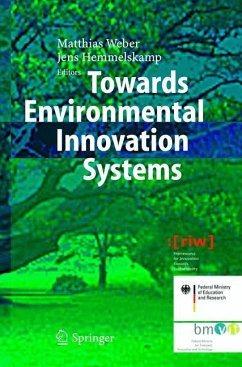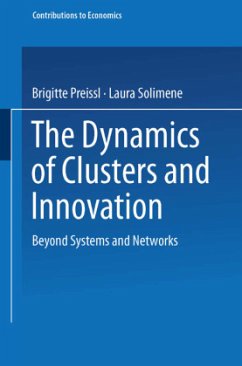
Innovations for our Future
Delphi '98: New Foresight on Science and Technology

PAYBACK Punkte
20 °P sammeln!
Foresight has experienced a great upswing in the last few years, partly in view of the Millenium. Innovations for our Future describes not only the big development trends of the future in research and technology, but also the re-discovery of the Delphi method. The Delphi method is not new, but with further developed methodology it is being used increasingly to take stock of innovative future developments. The book describes results of the widespread national survey of 1998, a German-Japanese comparison, another comparison with the preceding Delphi study as well as its utilization and implement...
Foresight has experienced a great upswing in the last few years, partly in view of the Millenium. Innovations for our Future describes not only the big development trends of the future in research and technology, but also the re-discovery of the Delphi method. The Delphi method is not new, but with further developed methodology it is being used increasingly to take stock of innovative future developments. The book describes results of the widespread national survey of 1998, a German-Japanese comparison, another comparison with the preceding Delphi study as well as its utilization and implementation.














